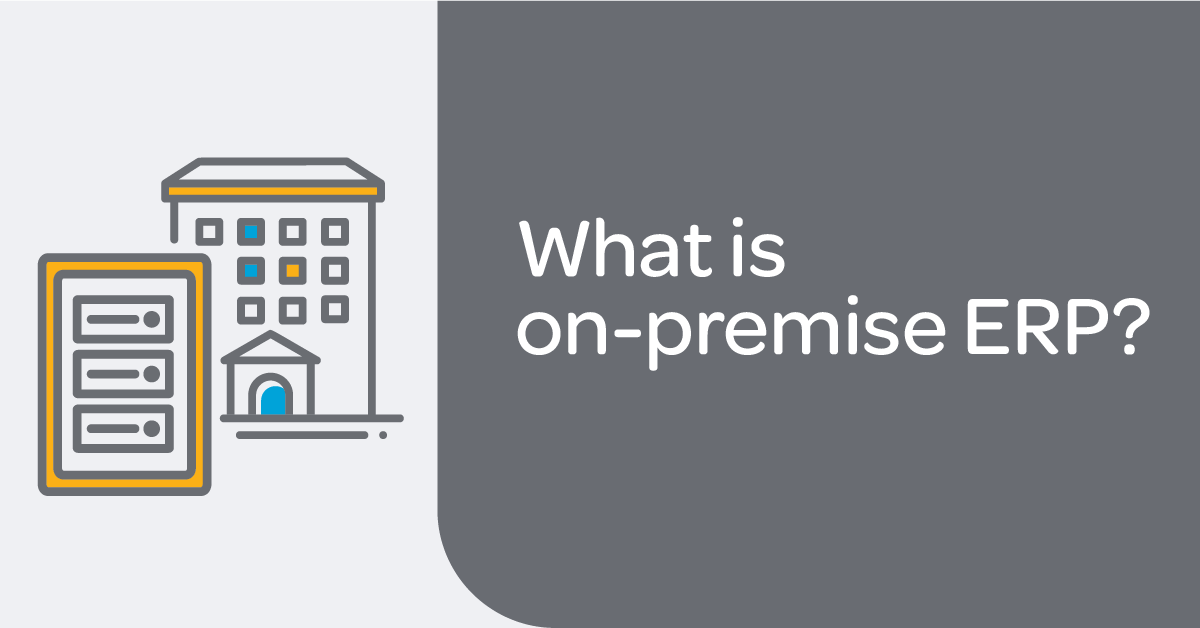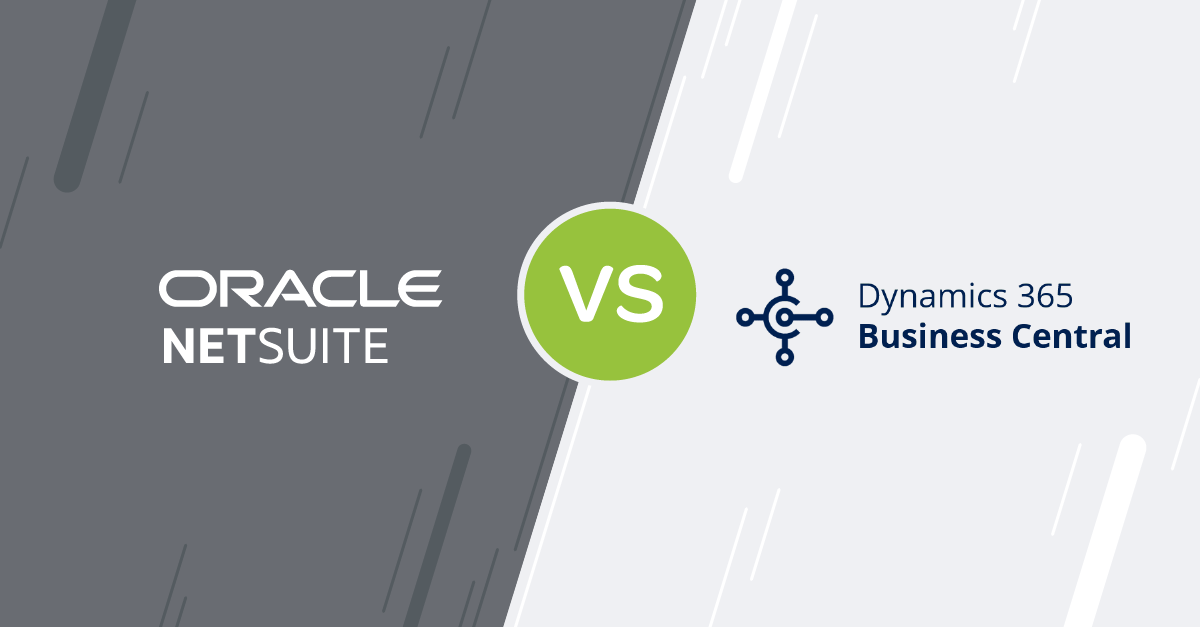Blog
Share this
What is On-premise ERP? Does it Make Sense for SMEs?

by Jalene Ippolito on October 08, 2020
An on-premise ERP solution is installed and maintained on a local server, within the walls of your building. Your users access the system as a desktop application on your local network. Although it’s a more traditional ERP model in comparison to cloud ERP options, there are still some companies that prefer on-premise solution for any number of reasons.
Deciding whether to go on-premise or cloud comes down to your business needs – there’s no single option that will be the best fit for all companies. With that in mind, let’s look at the major considerations of an on-premise ERP system within four key areas.
1. Control over data security and disaster recovery measures
While cloud-based technology has become increasingly secure over the years, some companies still prefer to have full control over the security and disaster recovery measures for their systems. With an on-premise ERP system, your IT team is responsible for data security, server maintenance and the supporting infrastructure.
For some companies, there’s peace of mind knowing they’re in full control. Whether you rely on an internal IT team or outsource to an IT services provider, it’s crucial to ensure they have the expertise to properly maintain your data security. You’ll also need a secure server room and all the supporting infrastructure, including the backup and disaster recovery components that will get your mission-critical ERP system running again quickly in event of unforeseen circumstances. If you have the resources to do this properly, an on-premise solution might be a good option. However, this typically isn’t the case for many small to mid-size companies. Carefully consider the level of data security, including disaster recovery capabilities, that you can achieve on your own compared to a private cloud solution that’s backed by a team of experts.
2. Control of your ERP system and data
Similarly, an on-premise ERP solution gives you total control of your system and your data. This becomes an important factor if you have high standards, contractual obligations, or even government legislation for data management based on the customers you work with (e.g. government agencies, banks, etc.). In cases like these, an on-premise ERP system might make sense when the cost to meet these standards is just too high to outsource. Here again, this is assuming that you have the internal IT resources and knowledge to properly maintain the system.
If you’re simply looking for control to determine your upgrade cycle based on your business needs, a private cloud solution might be a better option. The concerns about having updates automatically applied to your system, as they are in a public cloud approach, simply don’t apply to private cloud ERP. You still have discretion over when your upgrades are done, so you can coordinate with upgrades to customizations or integrations simultaneously. This is truly the best of both worlds – the control you want over your ERP system, without the headache of managing the infrastructure.
3. Flexibility to customize and integrate your ERP system
Most ERP solutions in the market today are well equipped to handle standard business processes out-of-the-box. But what about those that are unique to your business? If you need to modify or customize your ERP system, that can be a bit more challenging in a public cloud solution. It’s not impossible, but there are more specific rules so you may be more constrained in what you can do. Does that mean on-premise is the way to go if you want full flexibility? Not necessarily. You can achieve that with a private cloud solution as well – here again, you get the benefit without the additional draw on your IT team.
4. Easy access to your ERP system
For some companies, an on-premise ERP makes sense simply because of location. This often comes up for businesses located in rural areas that lack good internet service. To keep the business running efficiently, they can’t be fighting with slow internet speeds or drops in service.
If that isn’t the case for you though, consider the limitation that an on-premise solution puts on your system access. You’re limited to connecting to your system when you’re in the building. For those on your team that work remotely, this can present a challenge as they don’t have easy access to the data they need to do their jobs. Think about your sales team when they’re on the road. Or even your management team – they’re often working from home or checking in while they’re on vacation. This is much easier to do with a cloud solution (public or private), where you can connect easily with nothing more than an internet connection.
Private cloud ERP – bridging the gap between on-premise and public cloud
Private cloud hosting is a great option to give you a blend of on-premise and cloud ERP. It’s essentially an on-premise system, but it’s hosted in a datacenter dedicated to your organization. Your users will use a virtual private network (VPN) to connect to the system, but otherwise their experience is the same. The big benefit for you is that you can offload the IT infrastructure, backup and disaster recovery plan, and maintenance.
With a quality hosting provider (like ProjectLine), you’ll get even better data security and redundancy than you could provide on your own. As the first and longest-standing Canadian hosting providers for SAP Business One, we've fully optimized the service to give you total peace of mind. It’s truly the best of both worlds and gives you ultimate flexibility to move toward a hybrid cloud model – where you can leverage your private cloud ERP alongside integrated public cloud tools to best suit specific user needs.
Share this
Stay in the Know!
Join other SMEs who receive our monthly ERP insights, tips and best practices.
You may also like

ERP Funding for Canadian Businesses

Should You Work with a NetSuite Implementation Partner or Go Direct?



